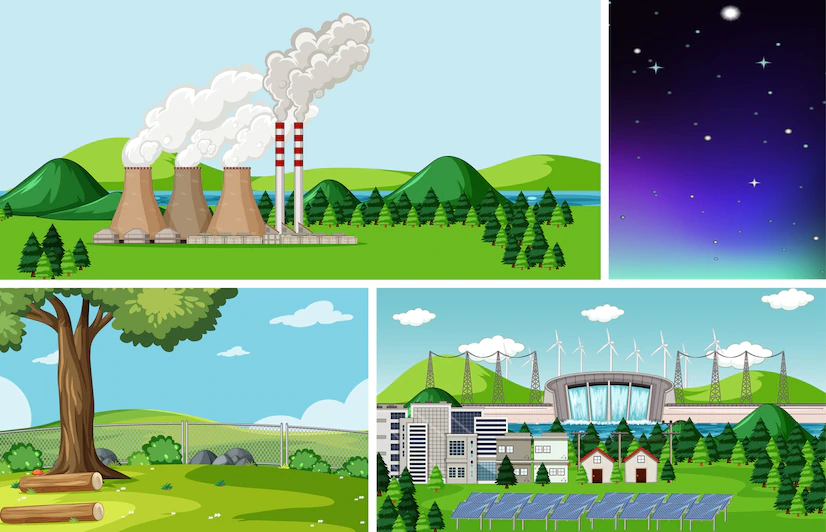Solar panels are a renewable source of energy that can be used to generate electricity. Photovoltaic cells found in solar panels are what turn sunlight into electricity. Since solar panels don’t release any greenhouse gases or other pollutants, they are a green way to produce electricity. Solar panels can be used to power buildings and electric cars as well as residences and businesses.
Solar panels are often thought of as only working when the sun shines during the daytime. However, new research has shown that solar panels can work at night. A new project that promises to provide solar power is underway even when the sun isn’t shining.
It will be too early to claim, but the team is confident they can develop a solar panel that will work at night. The board could provide a much-needed boost to the renewable energy industry if successful. The team is working on a prototype and plans to have a working model within the next few years.
Even though the sun isn’t shining at night, light is still coming from the moon and stars. This research shows that solar panels can convert this light into electrical energy, powering homes and businesses.
This is the best news for people looking for alternative energy sources. Solar panels have always been popular because they are environmentally friendly and renewable. Now that we know they can also work at night, they may become even more popular as a way to generate electricity.
An advanced way to collect solar energy is developing, even when the sun isn’t shining. The technology works by using a particular type of solar panel that can absorb infrared light, which is then converted into electricity. Solar panels could work around the clock, providing a much more reliable and consistent energy source.
What’s new: Let’s find out!
This new type of solar panel development is still in its early stages, but the potential implications are enormous. If successful, it could completely change how we think about renewable energy sources. Solar panels that work at night would be a game-changer for individuals and businesses, providing a clean and sustainable source of power around the clock.

New research has shown that solar panels can also work at night by using moonlight to generate power. This is a significant finding, as solar panels could be used to generate electricity 24 hours a day.
The potential implications of this are huge. For one, it could mean a significant increase in the efficiency of solar power plants. Additionally, it could lead to developing new “smart” solar panel technologies that can automatically adjust their orientation to maximize power generation.
Of course, we need more research to confirm these findings and determine the feasibility of using moonlight to generate electricity on a large scale. But if successful, this could be a game-changing breakthrough for the renewable energy industry.
The challenges: What challenges exist in making this a reality?
These days Even if the sun isn’t shining, solar panels can still produce electricity. How is that even possible? Solar panels generate an electric current by utilizing the sun’s rays. The sun is the most potent light source, but it is not the only one. Moon also emits a small amount of light, and you can use that light to power your house or place of business.
Lack of power
The moon is a difficult place to harness solar power. The lack of sunlight and the harsh conditions make it hard to maintain solar panels. The dust on the moon’s surface can also be a problem, as it can clog up the boards and prevent them from working correctly. Additionally, the temperature extremes on the moon can cause problems for solar panels, as they can only work to their full potential within a specific temperature range.
Lack of strength
One challenge is that solar panels need direct sunlight to work effectively. Moonlight is not as bright and powerful as sunlight, so it can be more challenging to generate enough power from moonlight alone.
Another challenge is that exposure to intense light sources, such as the sun or moon, can damage solar panels. This means they need to be protected from these sources, which can add to the cost of using them.
Finally, solar panels are not 100% efficient at converting light into energy. This means that even if you can generate enough power from moonlight, you will still only be able to use a fraction of that power.
What could the future hold for solar panels that work at night?
There are many ways to improve solar panels to work more efficiently and provide more power. One way is to make them work at night. This would require storing energy during the day so it can be used at night. This is possible with current technology, but it is not very efficient.
Another way to make solar panels more efficient is to make them flexible so they can be placed on surfaces that are not perfectly flat. This would allow more surface area to be exposed to sunlight, increasing the electricity generated.
The future of solar panels is looking bright—literally. A new generation of solar panels is being developed that can collect energy from the sun during the day and night. This innovation could revolutionize the renewable energy sector by lowering the cost of solar power for households and businesses.
There are several different types of night-time solar panels under development. One type uses a special coating to absorb light from artificial sources, such as streetlights. Another type collects thermal energy from the sun’s heat during the day, which is then used to generate electricity at night.
The potential benefits of night-time solar panels are huge. They could help to reduce our reliance on fossil fuels and save money on energy costs. In addition, they could provide a much-needed boost to the renewable energy industry.
- About the Author
- Latest Posts
A passionate advocate for all natural and sustainable ideas. With a background in sustainable economics science and a deep love for nature, Sojy has dedicated his career to promoting eco-friendly practices and encouraging others to live a more sustainable lifestyle. He is an avid hiker, gardener, and cook, and loves experimenting with natural ingredients in his recipes and lifestyle routines. Sojy believes that small changes can make a big impact and is constantly seeking out new ways to reduce his carbon footprint and inspire others to do the same



